Governor Newsom’s Visit to China Shows the Potential for a Sophisticated, Progressive Foreign Policy
We need intelligent dialogue, not crude confrontation.
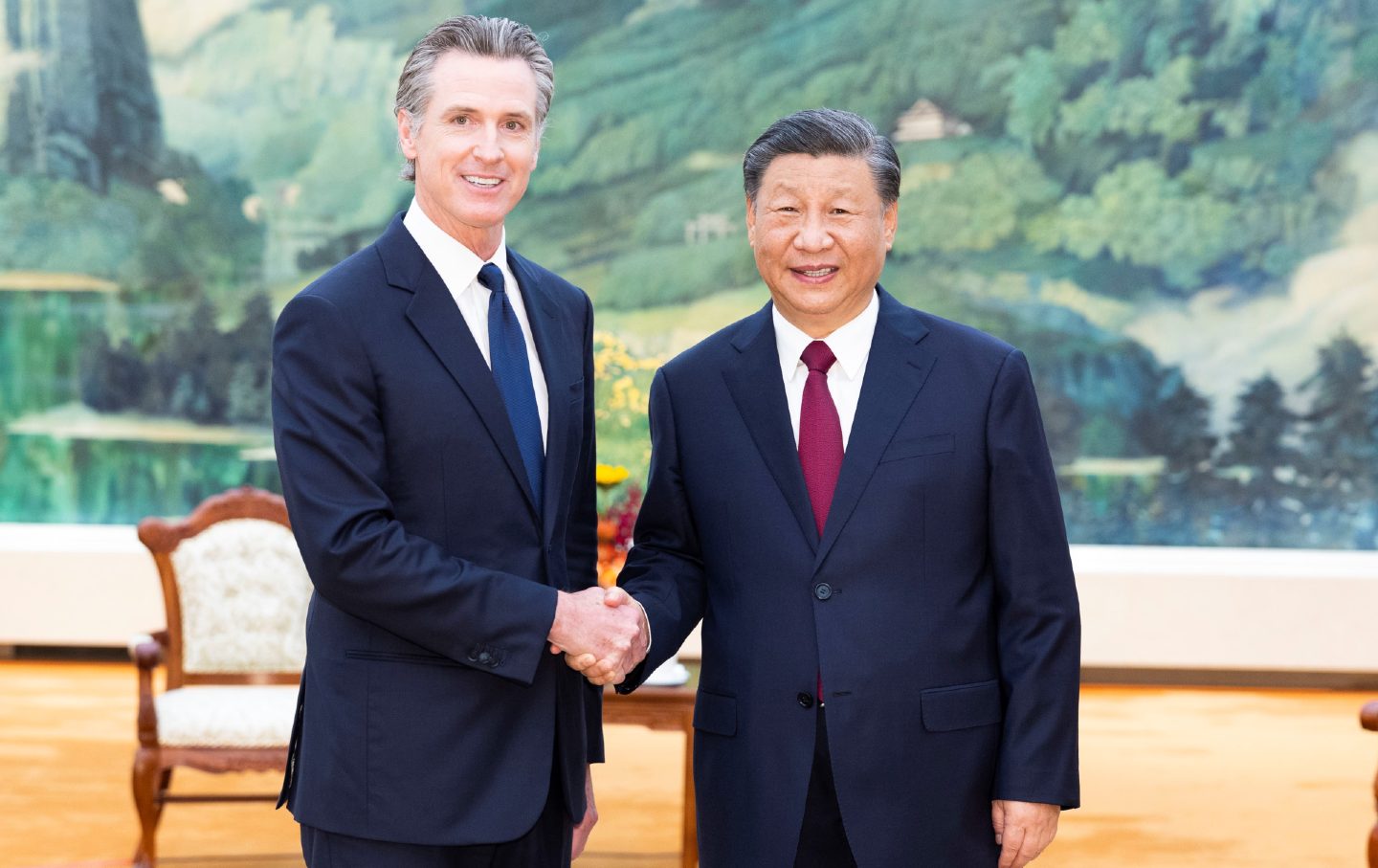
The controversy around California Governor Gavin Newsom’s trip to China last week illustrates a knotty problem for progressive politics. Newsom’s office pitched the trip as focused on climate cooperation. Seeming to sideline the points of tension between the United States and China—particularly the Chinese government’s deplorable human rights record—created an immediate backlash within the human rights community.
The ease with which core progressive commitments like climate action and respect for human rights can be pitted against each other demands careful consideration. In recent decades, political advocacy has largely been organized along single-issue lines. Such an approach may have been effective in an earlier, more stable period, when discrete issues could reasonably be isolated from other questions. But in our current moment of mutually reinforcing crisis, disaster, and violence, the existential threats facing humanity in general and excluded minorities in particular are systemic in nature.
An equally systemic strategy is needed to confront these dangers. That requires careful timing and diplomatic finesse alongside intelligent application of pressure, rather than crude polemics and confrontational tactics that could make the situation worse. The way Newsom’s trip ultimately played out gives hope for the kind of strategy that would be up to the challenges we face.
Initially, however, the prospects for the trip looked dim. After hearing about focus on climate, human rights advocates roundly denounced Newsom. Human Rights Watch called for Newsom to focus on the Chinese government’s widespread repression of civil society and ethnic minorities. A letter signed by dozens of mostly Hong Kong–oriented advocacy groups condemned Newsom for “meetings with officials of an authoritarian regime abroad” and chastened him for traveling to China when exiles living in California could not safely do so. Republican members of Congress from California demanded that Newsom either switch his focus to confronting Chinese leaders on human rights and Chinese companies selling chemicals used to make fentanyl or cancel the trip entirely.
Newsom did not cancel the trip. Nor did he crumple before the demands for a confrontational approach. On the contrary, in a weeklong trip that took him from north to south across the country with stops in five major cities and provinces, Newsom was exuberant at the opportunity to connect with Chinese officials. Stopping at a factory of BYD, one of the world’s largest electric vehicle manufacturers, he praised “the scale and the scope” of China’s transition away from fossil fuel-powered autos, calling it an “inspiration.” He also recognized that China’s ability to forge ahead flowed from a decades-long science and technology partnership with the United States—one that he was intent on reviving by renewing four existing California climate cooperation agreements with Chinese provinces and cities and signing a new one.
In an unplanned meeting with Chinese president Xi Jinping, Newsom avoided the antagonistic framing of bilateral relations that has become dogma in Washington. Instead, he placed his hopes for the future in a US-China relationship “of mutuality, one where we benefit the commonwealth.”
In one of the more memorable exchanges of the trip, a reporter asked Newsom about the idea that the US and China are locked in zero-sum competition. Instead of adopting the now-common pose of the grim Cold Warrior, bowed beneath the weight of a long twilight struggle pitting the American and Chinese peoples against each other, Newsom cheerfully repudiated the premise: “Some people see the world from a ‘scarcity’ frame, zero-sum. I don’t. I see the world from a framework of abundance.… I don’t begrudge other people’s success, I admire it. The more successful China is, the more successful we all will be.”
Throughout the trip, Newsom was responsive to Chinese leaders’ hunger for respect and recognition—rather than lectures and dictates—from US interlocutors. Far from sacrificing progressive priorities, by treating Chinese leaders with respect Newsom actually won a hearing for those priorities. In the end, he raised all the sensitive issues his critics had demanded he lead with: repression in Xinjiang, Tibet, and Hong Kong; tensions around Taiwan, imprisoned Americans, fentanyl exports. By starting from cooperation and shared interests, Newsom avoided the defensive counter-accusations that have come to dominate Chinese responses to US diplomats.
Of course, friendly persuasion is no more likely than belligerent condemnation to immediately change Chinese leaders’ behavior. But it points to a strategy more effective than issuing moralizing demands, which Chinese leaders—with good reason—consider cynical cover for a geopolitical agenda of military containment and economic exclusion.
American leaders should instead seek to cultivate the conditions under which progress on climate degradation, human rights abuses, economic inequality, and military conflict could simultaneously be achieved. As Newsom’s trip shows, human rights need not be abandoned in the pursuit of climate cooperation. And climate action need not be renounced in order to secure human rights. But progress on both will be impossible if we continue on the path to US-China conflict.
More than that: If the United States and China focused their energies on overcoming the core zero-sum pressures in the global system—slow and inequitable economic growth, an overconcentration of power in the hands of a few rich countries, and the looming climate crisis—then constructive US-China relations could also provide the impetus for structural reforms that would reduce human rights abuses and xenophobic hatred around the world.
That’s because scarcity is not just a mindset but a reality—one that is deepening divisions in every society. Existing lines of conflict, whether national, ethno-racial, or religious, have been significantly exacerbated by the breakdown of market-led globalization over the last 15 years. Added to the extreme inequalities and forms of exclusion that defined globalization even in its heyday, the disintegration of recent years has made the search for wealth and power increasingly zero-sum in nature.
The solution, however, is neither seizing what “we” can at the expense of others nor ineffectual denunciations of those who do so. Instead, we need Newsom’s optimism about working with others on the shared interest of making abundance possible for all. That means, above all, reforming the global system to become more rather than less inclusive.
To achieve such a transformation, progressive foreign policy will have to go beyond morally correct but strategically naïve criticism. It must recognize the interconnectedness of our crises and their potential solutions. Even as it stands firm against actions that make scarcity and conflict worse, it must also cultivate support from some of the very leaders responsible for those actions. Saying the right thing is not enough—it must be said in the right way and at the right time.
Your support makes stories like this possible
From Minneapolis to Venezuela, from Gaza to Washington, DC, this is a time of staggering chaos, cruelty, and violence.
Unlike other publications that parrot the views of authoritarians, billionaires, and corporations, The Nation publishes stories that hold the powerful to account and center the communities too often denied a voice in the national media—stories like the one you’ve just read.
Each day, our journalism cuts through lies and distortions, contextualizes the developments reshaping politics around the globe, and advances progressive ideas that oxygenate our movements and instigate change in the halls of power.
This independent journalism is only possible with the support of our readers. If you want to see more urgent coverage like this, please donate to The Nation today.
More from The Nation
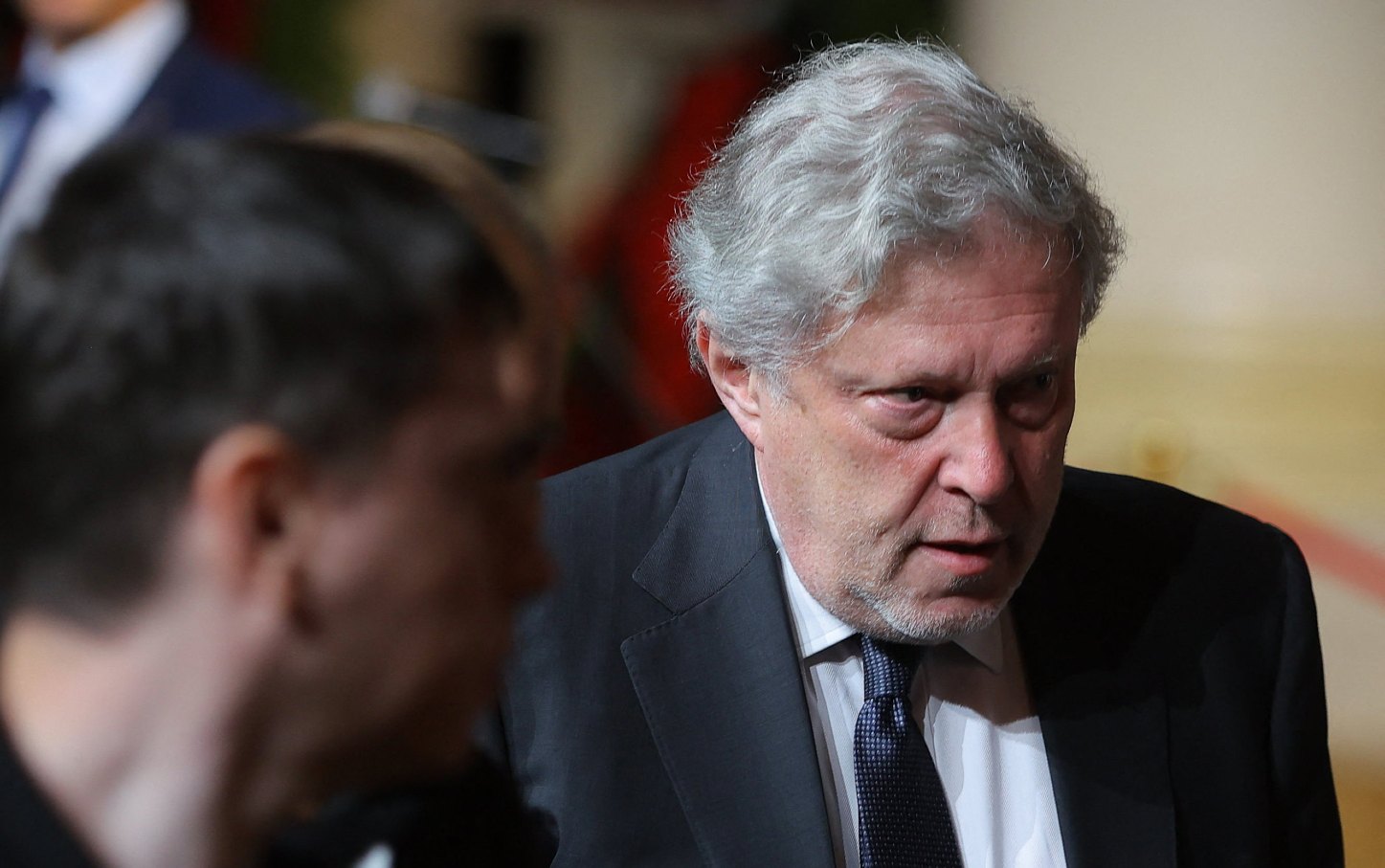
“We Are All Passengers on the Titanic” “We Are All Passengers on the Titanic”
An interview with Grigory Yavlinsky.
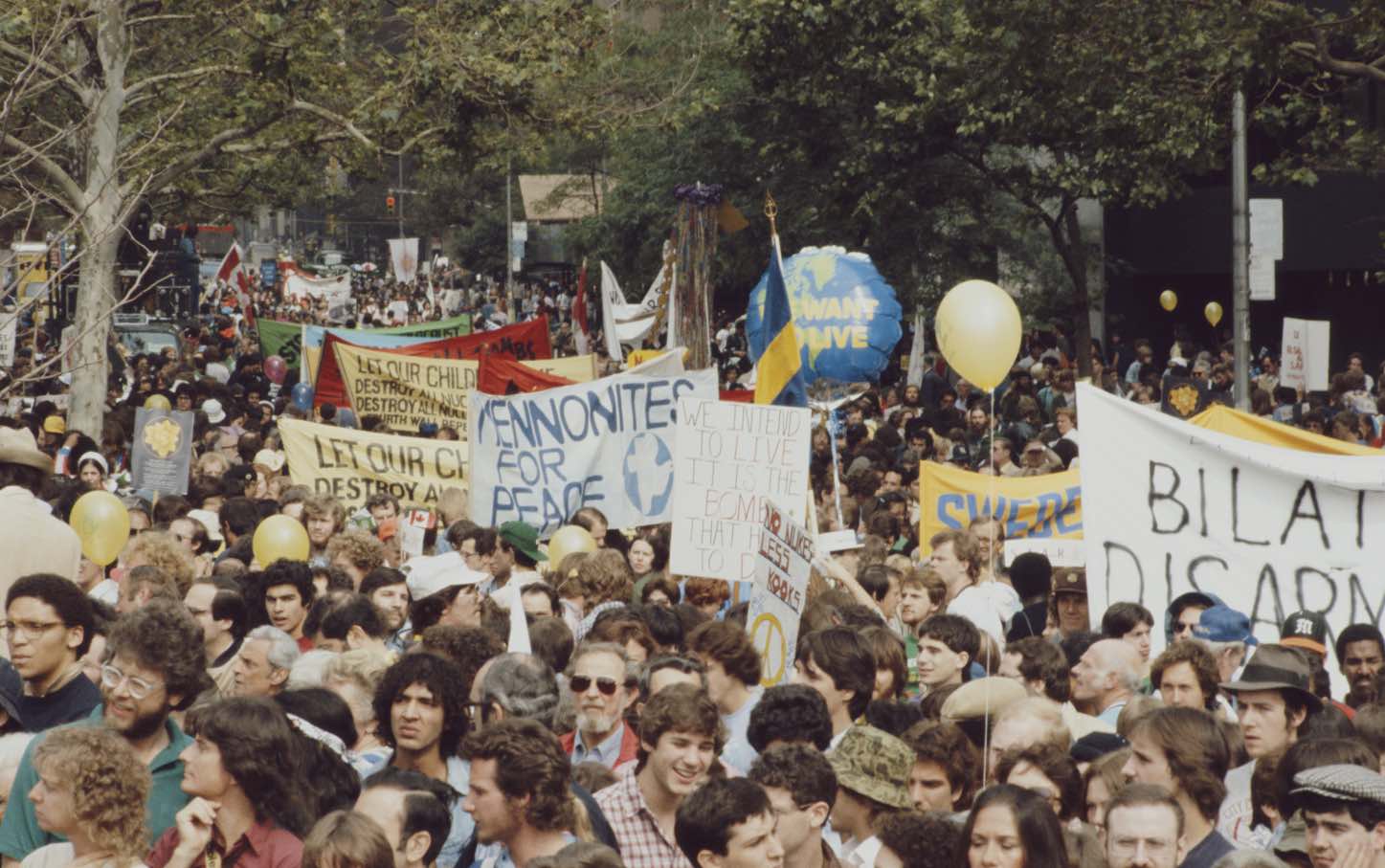
Speaking Out on the Insanity of Nuclear Weapons Speaking Out on the Insanity of Nuclear Weapons
At a time when nuclear dangers are not just rising, but multiplying, we need all hands on deck in sounding the alarm and advocating for abolition of nuclear weapons.
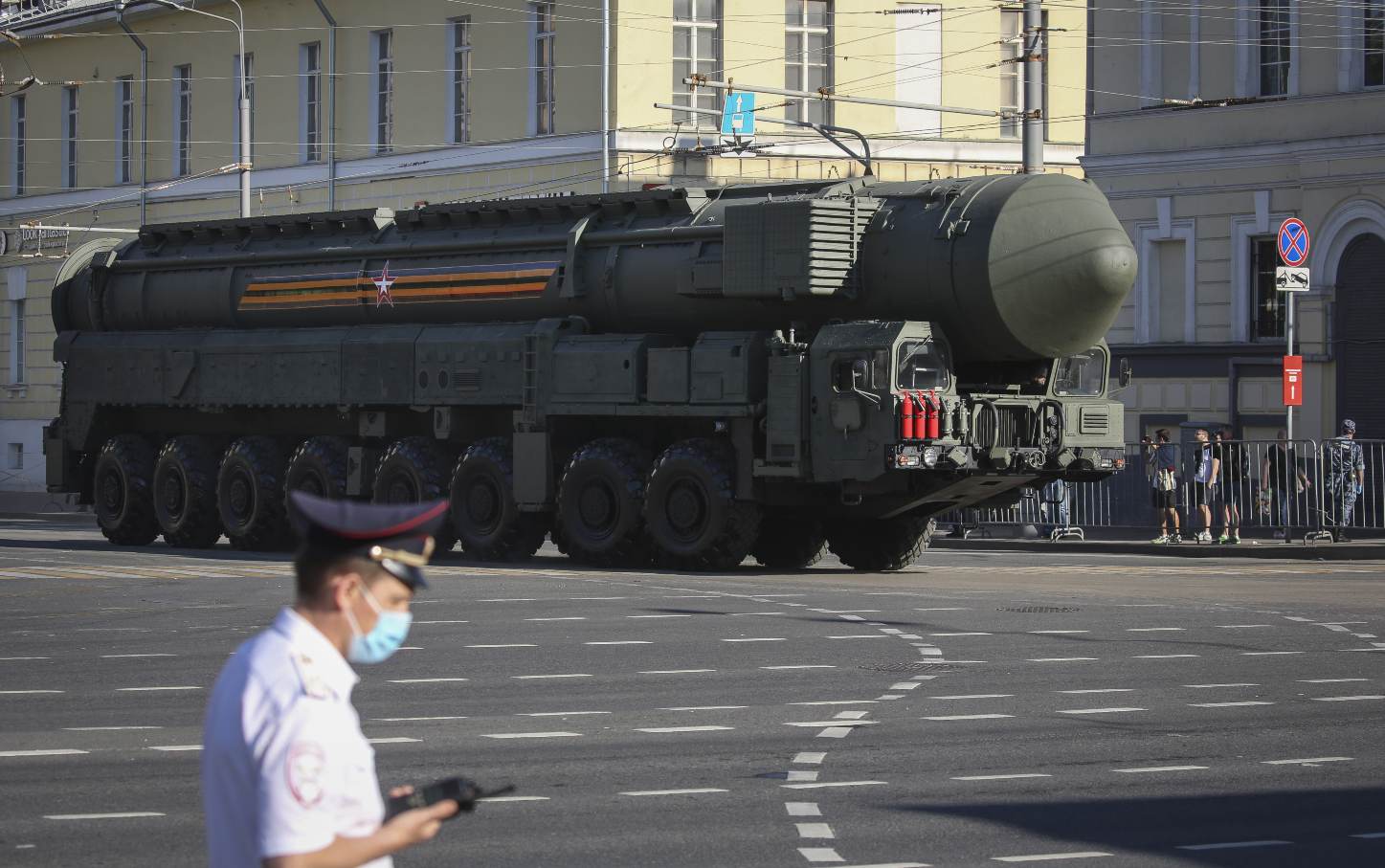
The End of Arms Control? The End of Arms Control?
For the first time, we will live in a world without constraints on the US-Russian nuclear arsenal.
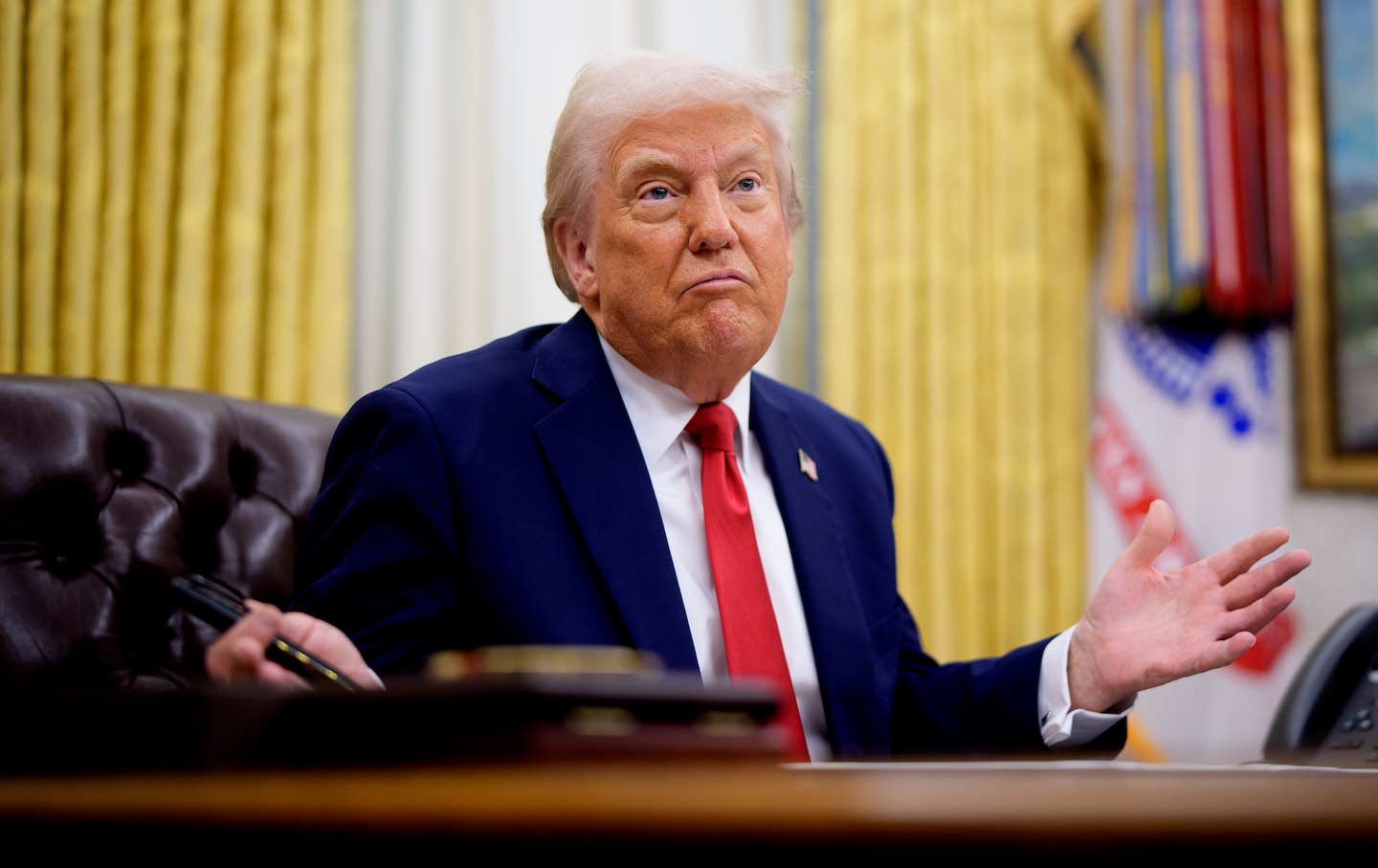
Trump’s Denunciations of the Iranian Killings Are Pure Hypocrisy Trump’s Denunciations of the Iranian Killings Are Pure Hypocrisy
The arbitrary arrests and killings committed by agents of Trump’s authoritarian-style rule differ only in number, not in kind, from those in Iran.

“We Have Covered Events No Human Can Bear” “We Have Covered Events No Human Can Bear”
Journalists in Gaza have bartered their lives to tell a truth that much of the world still doesn’t want to hear.

A Catalog of Gaza’s Loss A Catalog of Gaza’s Loss
Recording what has been erased—and making sense of what remains.


